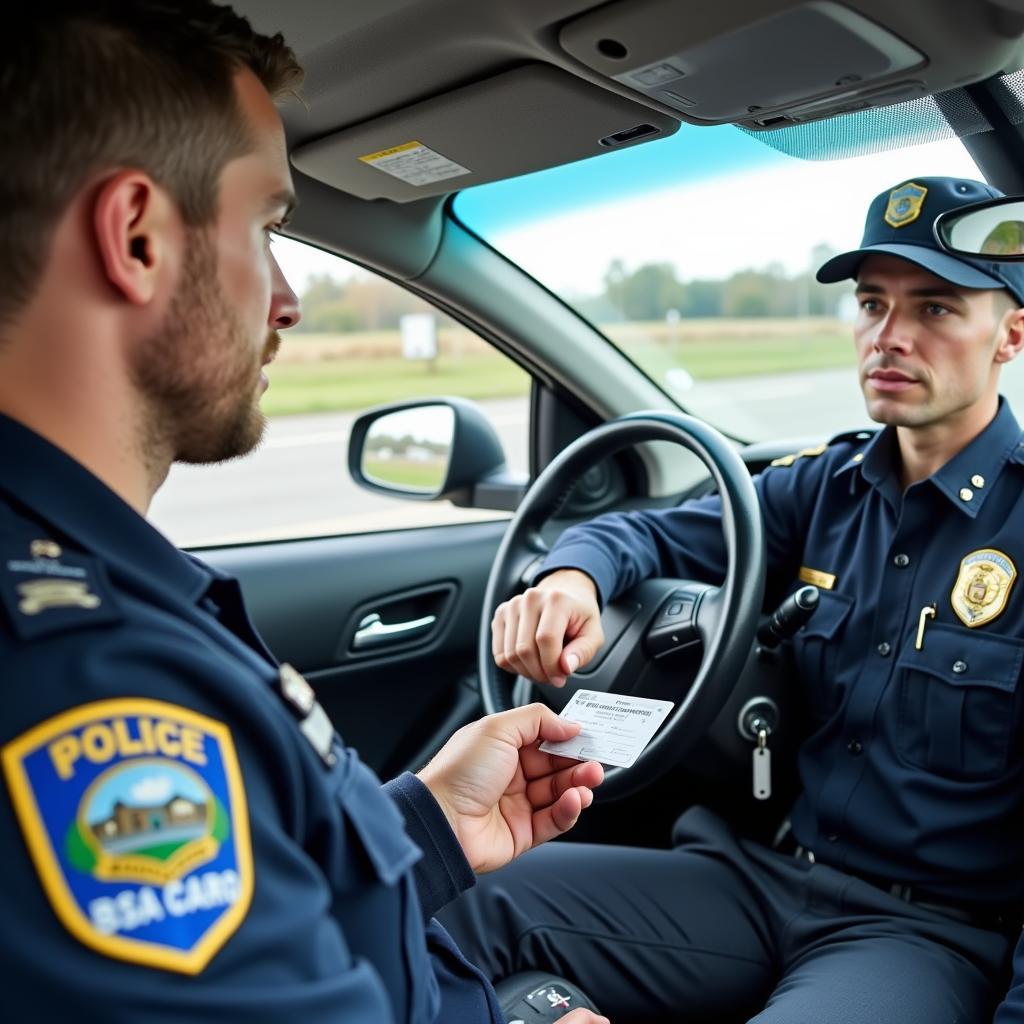When involved in a car accident or other driving-related incident, the question of whether you have to give car insurance details often arises. It’s a crucial point to understand, as sharing or withholding this information has significant legal and financial implications. This article delves into the complexities of this issue, offering clear guidance on when you’re obligated to provide your car insurance details and what consequences might arise if you don’t.
Giving your car insurance information isn’t always required, but in many situations, it’s essential. Legally, you’re required to exchange insurance information after an accident in most jurisdictions. However, there are nuances to this requirement that depend on the specific circumstances, such as the location of the incident and the severity of any damage or injuries. Understanding these nuances can save you from potential legal trouble and ensure a smooth claims process. do i have to give my car insurance details
When Are You Required to Provide Insurance Details?
Several situations legally obligate you to disclose your car insurance details. These typically involve instances where others are potentially affected, such as accidents causing damage or injury. Failing to provide your details in these cases could lead to penalties.
Accidents Involving Damage or Injury
If you’re involved in an accident that results in damage to another vehicle or property, or if anyone sustains injuries, you’re legally required to provide your insurance details to the involved parties and, in some cases, the police. This allows for a streamlined claims process and ensures those affected can seek compensation for their losses. This is consistent across most states and countries.
Traffic Stops and Police Requests
If you are stopped by law enforcement for a driving-related offense, you may be asked to present your car insurance details. This is a standard procedure to verify that you are legally insured to operate a vehicle. Failure to provide this information can result in fines and other penalties. Understanding how to check car registration details can be helpful in these situations.
 Police Officer Checking Insurance During Traffic Stop
Police Officer Checking Insurance During Traffic Stop
What Information Should You Exchange?
When required to provide insurance details, it’s essential to know precisely what information needs to be exchanged. This typically includes your insurance company’s name, your policy number, and your contact information.
Essential Insurance Information
Sharing your name, policy number, and insurance company name is crucial. This allows the other party to contact your insurer and begin the claims process. It’s also wise to collect the same information from them. Considering should i detail my car before selling it can enhance its value but insurance exchange is a separate matter altogether.
Additional Information to Exchange
Exchanging driver’s license information, vehicle registration details, and contact information can further aid the claims process. This provides a comprehensive record of all parties involved and facilitates communication. It’s also beneficial to document the accident scene with photographs and gather witness details, if possible.
What If I Don’t Give My Car Insurance Details?
Failing to provide your insurance details when required can have serious consequences. These may range from fines and penalties to potential legal action and difficulties with future insurance claims.
Legal Consequences
Depending on the jurisdiction, withholding insurance information can lead to fines, license suspension, or even legal action. This is especially true in cases of hit-and-run accidents or when serious injuries are involved.
Impact on Insurance Claims
Not providing insurance information can complicate future insurance claims. It can raise red flags with your insurer and potentially hinder your ability to receive coverage. Knowing when you’re obligated to provide information can help avoid these issues.
Do I Have To Give My Car Insurance Details in Texas?
Texas, like most states, mandates the exchange of insurance information after an accident. For specifics regarding Texas law, see our dedicated article: do i have to give my car insurance details texas.
 Drivers Documenting Accident Scene with Smartphone
Drivers Documenting Accident Scene with Smartphone
Conclusion
Understanding when and why you’re required to give your car insurance details is crucial for any driver. While the specifics vary depending on location and circumstance, the general principle is to provide this information whenever there’s potential liability for damage or injury. By adhering to these guidelines and understanding the legal requirements, you can protect yourself from potential consequences and ensure a smooth claims process should an incident occur. For further insights, consider how to find car owner details using resources like how to find details of car owner from number plate. Remember, providing insurance details when required isn’t just a legal obligation, it’s a responsible practice that promotes accountability and ensures fairness for all involved.
FAQ
- What if the other driver doesn’t have insurance?
- What if the accident was my fault?
- Do I need to give insurance details for a minor scratch?
- Can I refuse to give insurance details if the other driver is aggressive?
- What should I do if I suspect the other driver is providing false insurance information?
- What information do I need to collect from the other driver?
- Should I call the police after a minor accident?
Scenarios
- Parking lot fender bender
- Multi-car pileup on the highway
- Hit and run
- Single car accident where you damage public property
Further Reading
Check out these related articles:
- Do I need to give my insurance information if I was not at fault?
- What to do if the other driver refuses to provide insurance details?
Need help with a car diagnostic issue? Contact us via WhatsApp: +1(641)206-8880 or Email: [email protected]. Our team is available 24/7.

Leave a Reply